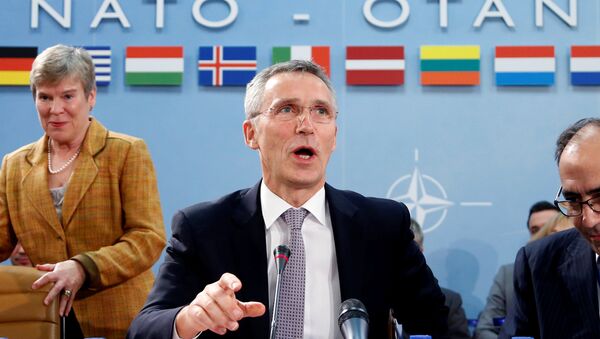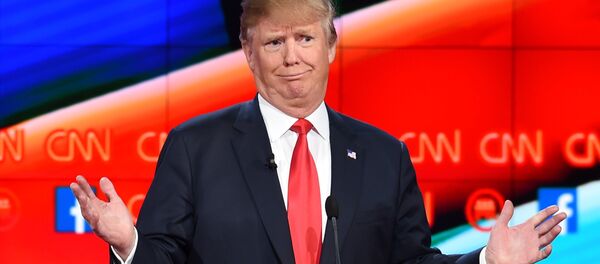The issue has become diplomatically lively ever since US President-elect Donald Trump made clear he believes that Europe is not pulling its weight within the alliance and questioned why the US pays so much into an organization he described in March as "obsolete".
Although NATO considers that it remains the major Transatlantic and European military operation, the European Union is taking increasing steps to create an EU defense and security alliance that some say will duplicate the role of NATO.
In times of instability, institutions and cooperation are as important as ever. #EU & #Nato stand together. w/ @JunckerEU & @eucopresident. pic.twitter.com/rCdAy7lp9m
— Jens Stoltenberg (@jensstoltenberg) November 30, 2016
When questioned Tuesday (December 6) by reporters about NATO-EU relations, in the light of recent announcements about closer EU defense capabilities — centered on Brussels — Stoltenberg said: "We welcome stronger European defense, but [we need] to make sure that this is done in a way that is complementary to NATO. We need to keep close cooperation between NATO and the EU.
"Questions have been asked related to the strength of the Transatlantic bond. I think the best way to respond to those questions is to deliver stronger NATO-EU cooperation, which strengthens the Transatlantic bond," he said.
[ICYMI] @JensStoltenberg's doorstep statement https://t.co/HbYyM1l1zy #ForMin
— NATO (@NATO) 6 December 2016
The Commission announced, November 30, the creation of a new "European Defense Fund" which would "support Member States' more efficient spending in joint defense capabilities" including research into "innovative defense technologies such as electronics, metamaterials, encrypted software or robotics" and the procurement of new assets, such as drone technology and jointly-bought helicopters to reduce costs.
The announcement comes on the back of the last EU foreign ministers' meeting, November 14/15, which agreed to set up a rapid reaction force that will involve EU Battlegroups, "air security operations", "maritime security or surveillance operations", with its own headquarters, working alongside NATO.
.@FedericaMog — Foreign Affairs Council "not about EU Army. It is about #SecurityEU & Defence more credible and effective than it is today" pic.twitter.com/NsS96OauO6
— European Commission (@EU_Commission) 14 November 2016
'Transatlantic Bond'
At their meeting, December 6/7, NATO ministers are expected to agree a set of 40 concrete proposals to boost cooperation between NATO and the EU, including on so-called 'hybrid' threats, boosting cyber defense and working together at sea.
"NATO's Foreign Ministers will address some of the security challenges we are all facing and we will do that by addressing a wide range of the issues but at the core of the meeting is the importance of the transatlantic bond, the bond between Europe and North America," Stoltenberg told reporters ahead of the meeting.



